Want to jump straight to the answer? The best knowledge base software for most people is Heroic KB or Helpjuice.
We live in a world that revolves around customer service. Whether it’s helping customers use a product or navigate a service, great support drives satisfaction—and satisfaction drives growth.
Enter knowledge base software. Instead of printing and shipping manuals, you can publish living, searchable documentation that’s always up to date.
A modern knowledge base lets customers and employees solve problems quickly without waiting on chat or phone queues. Articles are available 24/7, which reduces tickets, improves time-to-resolution, and keeps teams focused on the handful of issues that truly need a human.
Put simply, knowledge base software makes answers easier to find—and that’s what everyone wants.
The Top 8 Best Knowledge Base Software
Here are the top options on the market right now, including who they’re best for.
- Heroic KB — Best knowledge base theme + plugin stack for WordPress sites
- Helpjuice — Best for scalable, branded external knowledge bases with strong analytics
- Document360 — Best for technical documentation and multi-project control
- Zendesk — Best all-in-one customer support suite with integrated help center
- ServiceNow — Best for IT service management and enterprise workflows
- HelpSite — Best for simple, fast FAQ and help center pages
- ProProfs Knowledge Base — Most beginner-friendly, with quick setup
- Tettra — Best for internal team knowledge bases
After extensive research and testing, we narrowed the field to eight tools we can confidently recommend. The reviews below cover core features, real-world use cases, pricing, and any drawbacks to keep in mind.

Heroic KB pairs the KnowAll WordPress theme with the Heroic KB plugin to add a full, professional knowledge base to any WP site—no custom code required.
More than 31,000 sites rely on HeroThemes’ knowledge base stack to power their documentation and FAQs.
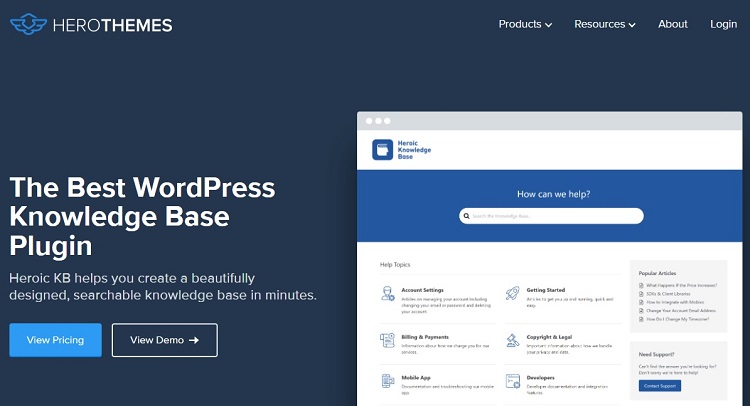

If you already use WordPress and want to manage articles inside your dashboard, this is an easy win. The theme is clean and fast, and the plugin adds the features you actually need.
Highlights you’ll notice right away:
- Fast, typo-tolerant search and article suggestions
- Responsive layouts for desktop, tablet, and mobile
- Actionable analytics (popular searches, failed searches, feedback)
- Inline article feedback and attachments
- Shortcodes, widgets, and a built-in table of contents
- Access controls for internal vs. public content
- Integrations with Slack, HelpScout, WPForms, Gravity Forms, and more
Like most WordPress themes, KnowAll is flexible and easy to customize. It’s used across every kind of industry, from SaaS to ecommerce.
Current plan options typically include:
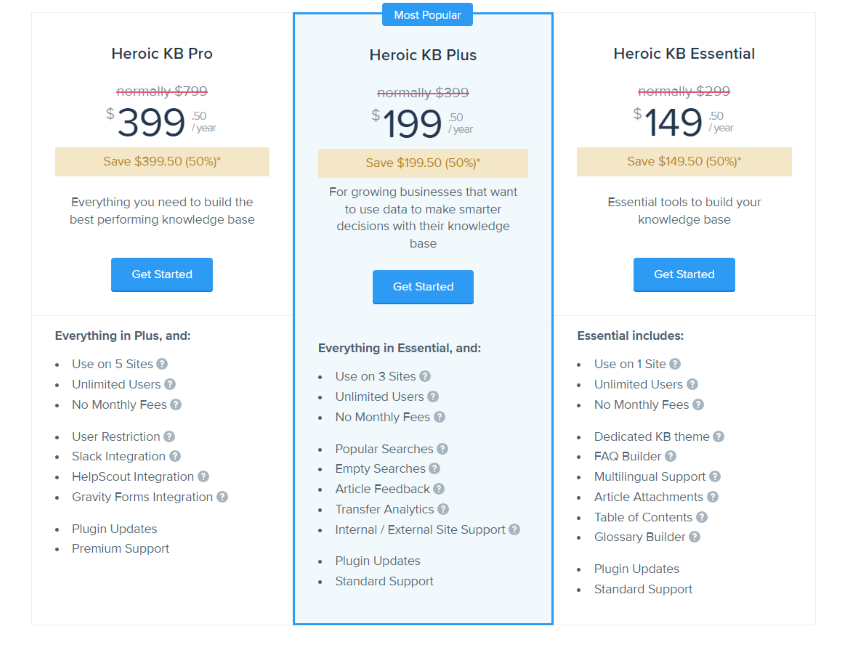

- KnowAll KB Essential — promotional pricing often around $67.60/year
- KnowAll KB Plus — promotional pricing often around $139.60/year
- KnowAll Pro + AI — promotional pricing often around $239.60/year
All plans include updates and support, plus a 14-day money-back guarantee. Try Heroic KB today.
Helpjuice — Best For Scalable Support
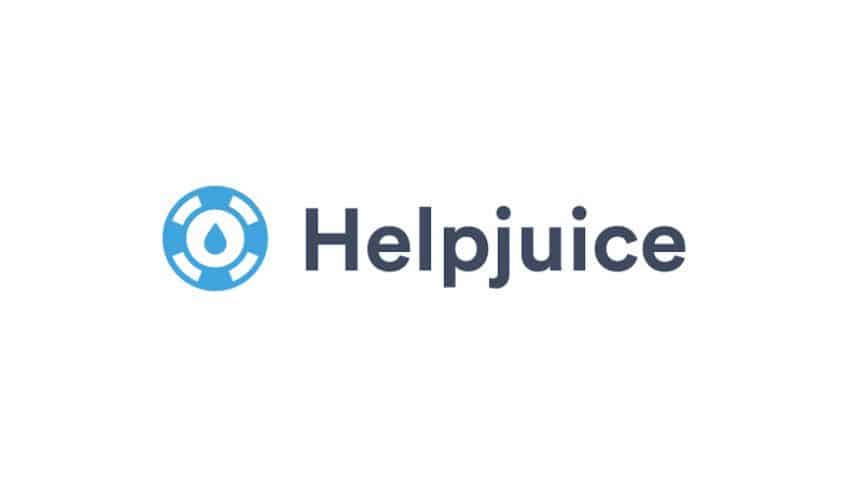

Helpjuice is a polished, enterprise-ready platform trusted by thousands of companies—including household names like Amazon, Hertz, and the World Health Organization.
It’s fully customizable, quick to deploy, and built to scale as your team grows.
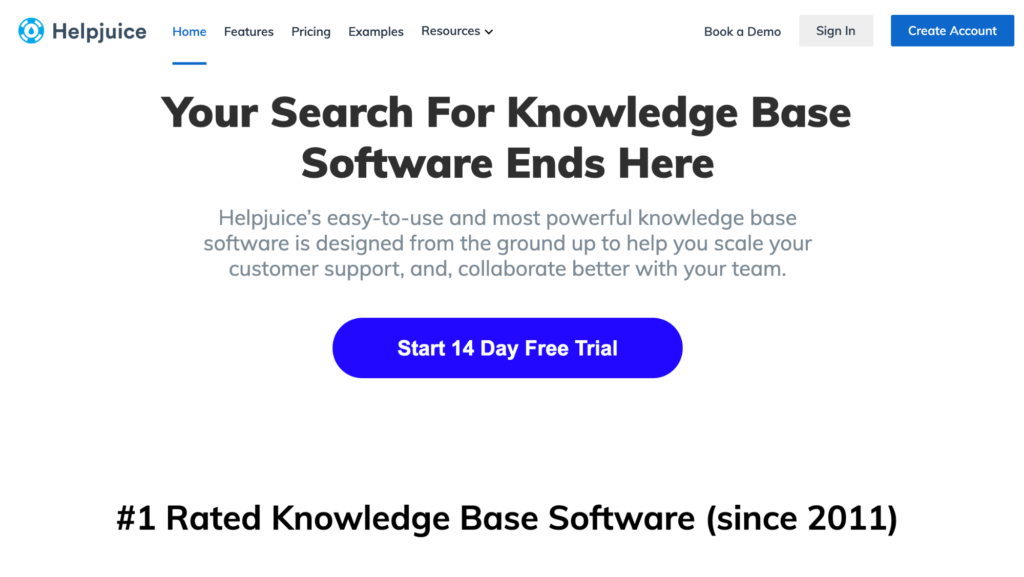

Helpjuice shines for teams with many collaborators. You can comment in context, version content, and publish improvements fast—without a painful learning curve.
Standout features include:
- Lightning-fast, “Google-like” search with relevance tuning
- Dozens of professionally designed themes and deep branding controls
- Robust analytics (search terms, article impact, topic interest)
- Drag-and-drop media and rich formatting
- Automatic interlinking suggestions across related articles
- Powerful versioning and review workflows
- Granular permissions for internal or external content
Pricing is simple and includes all features on every plan—the only difference is user limits:
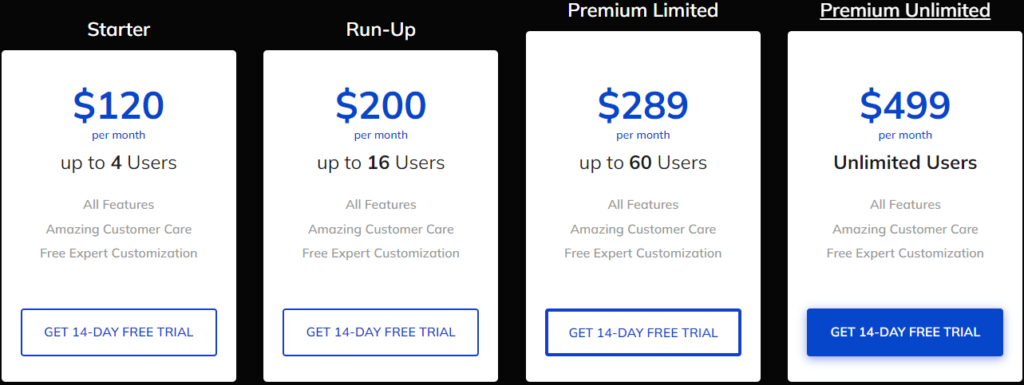

- Knowledge Base — $249/month (up to 30 users)
- AI-Knowledge Base — $449/month (up to 100 users)
- Unlimited AI-Knowledge Base — $799/month (unlimited users)
All plans include expert customization and excellent support. Try Helpjuice free to see how it fits.
Document360 — Best For Technical Documentation
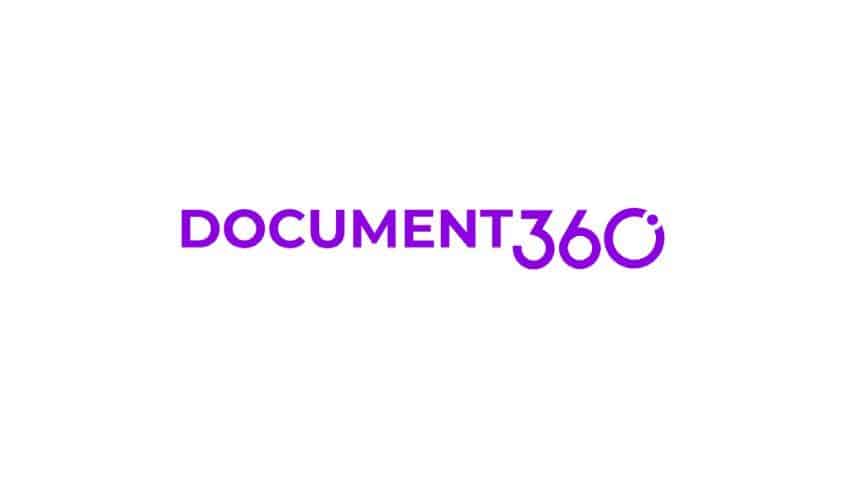

Document360 is built for serious documentation teams. It’s an exceptional fit for SOPs, API docs, release notes, and multi-product help centers used by organizations like Harvard and McDonald’s.
Teams get an advanced authoring portal, strong version control, reusable content blocks, and granular roles—everything technical writers expect.
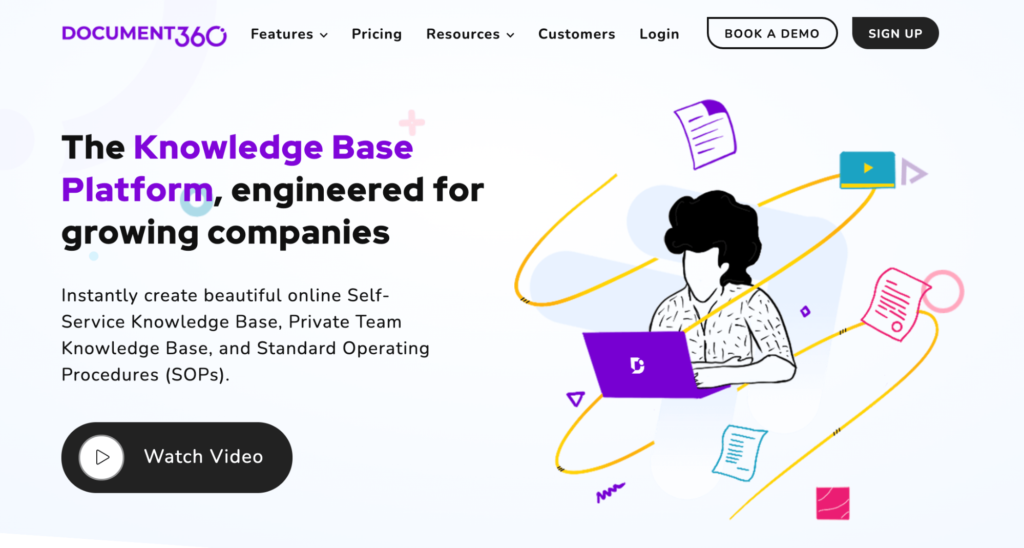

Top features you’ll use every week:
- Advanced portal for writers and editors (Markdown + WYSIWYG)
- Drag-and-drop category and navigation management
- Article versioning, rollback, and review reminders
- Deep analytics and feedback workflows
- SSO, role-based permissions, SOC 2 compliance
- AI-assisted writing, FAQ generation, and semantic search
Pricing is tailored by project and features with a 14-day free trial available. Plans typically fall into Professional, Business, and Enterprise tiers. Try Document360 to get a quote and test it hands-on.
Zendesk — Best All-in-One Customer Support Suite
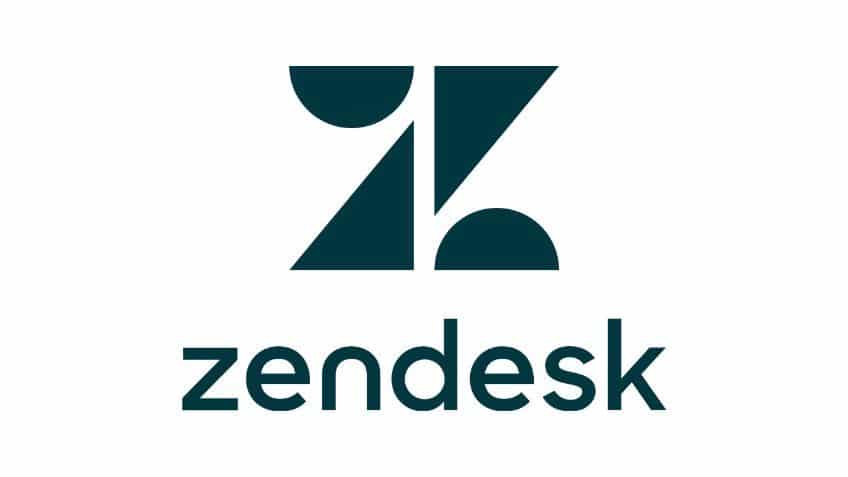

Zendesk is one of the most widely adopted support platforms. Beyond ticketing and live chat, the Suite includes a full help center (Zendesk Guide) with community forums and AI-powered article suggestions.
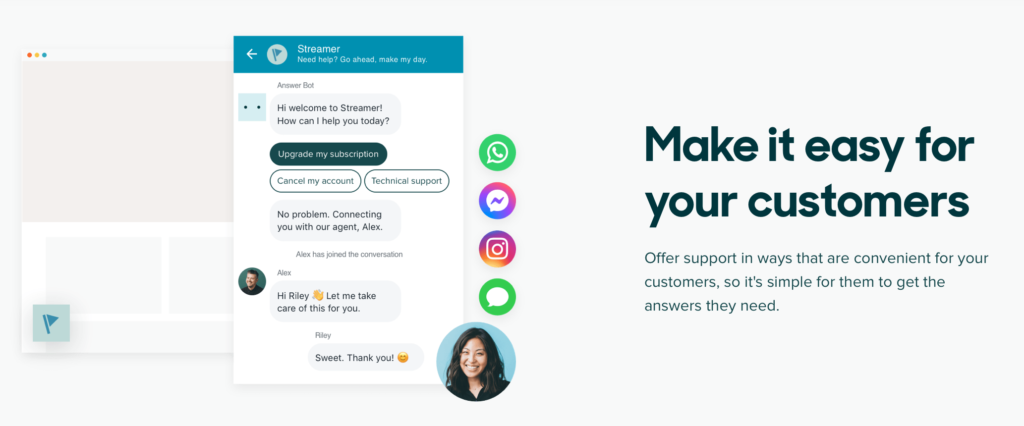

As an all-in-one suite, you get omnichannel support plus knowledge management in one agent workspace. It’s ideal if you want tickets, messaging, voice, reporting, and your help center under one roof.
Key capabilities:
- Omnichannel support across email, chat, voice, and social
- Ticketing with robust SLAs and automations
- Community forums and article recommendations
- Dashboards, CSAT, and analytics
- Apps and integrations marketplace
Zendesk for Service comes in Suite Team, Suite Growth, Suite Professional, and Suite Enterprise. Plans commonly start around $55, $89, and $115 per agent per month, with Enterprise available via custom quote.


If you only need a standalone knowledge base, Zendesk may be more than you need. But if you want a complete support operation in one place, it delivers excellent value.
Try it free for 30 days; startups may qualify for extended credits.
ServiceNow — Best For IT Service Management
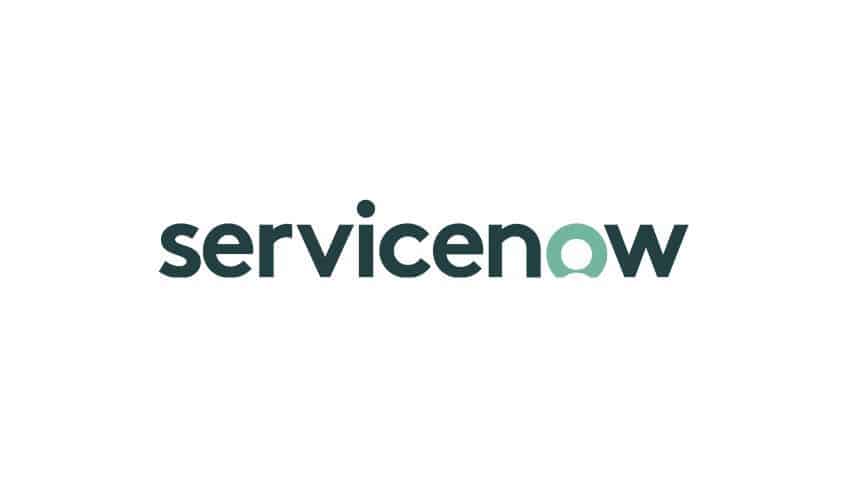

ServiceNow is a workflow platform used by large enterprises. Its knowledge management features are included with ITSM packages and power self-service for both employees and customers.
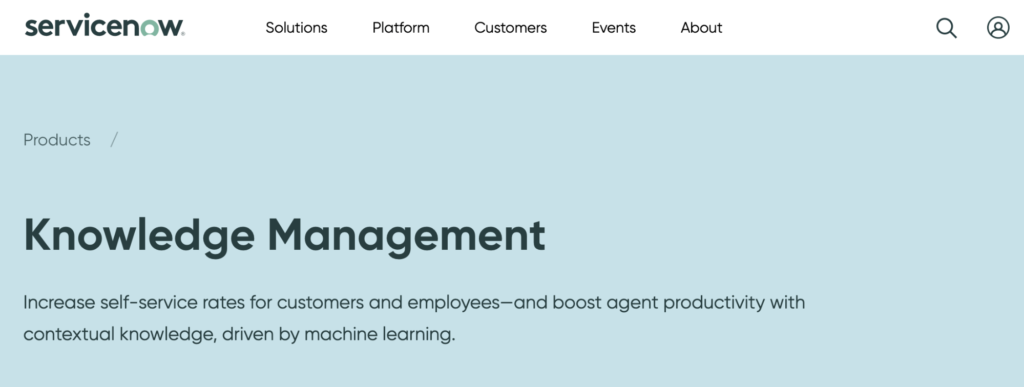

Highlights and benefits:
- Authoring in Microsoft Word Online or directly in the platform
- AI-enhanced search and “Now Assist” to identify gaps and generate articles
- Create knowledge during incident/problem workflows
- Feedback management and analytics
- Strong access controls, SSO, and enterprise-grade compliance
ServiceNow is sold via custom quotes across ITSM, Pro/Pro Plus, and Enterprise packages. Contact the ServiceNow team for pricing and a tailored demo.
HelpSite — Best For Simple FAQ Support Pages
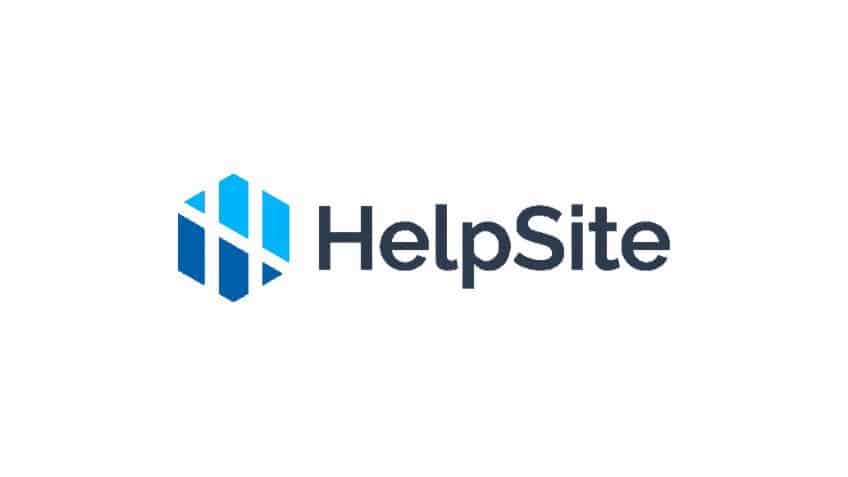

HelpSite is refreshingly simple. It focuses on clean FAQs and searchable help pages without extra bloat.
It’s perfect for small teams launching their first help center or businesses that value speed and clarity over complex tooling.
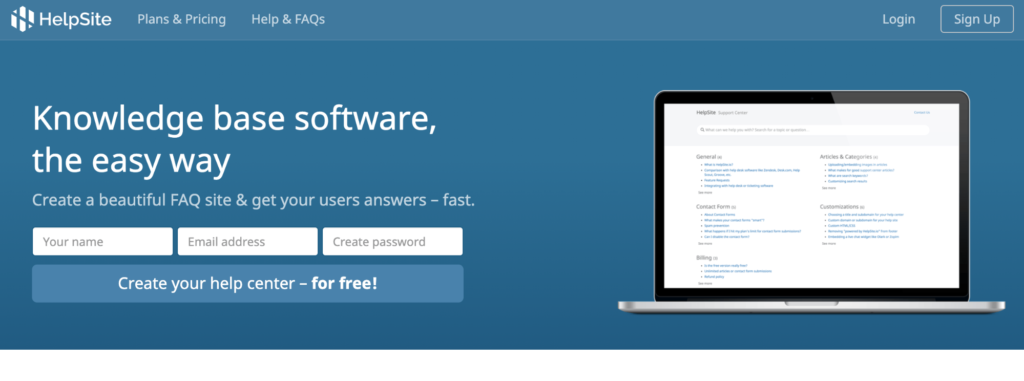

What you get:
- Mobile-friendly pages with instant search
- Smart contact forms that suggest relevant articles
- Simple admin interface and easy customization
- Controls for internal vs. public visibility
Plans and pricing:
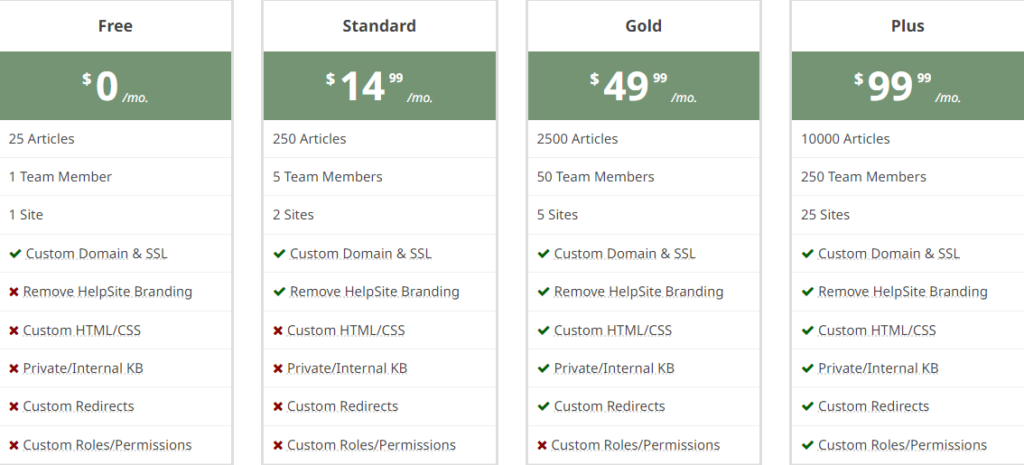

- Free — $0/month
- Standard — $14.99/month
- Gold — $49.99/month
- Plus — $99.99/month
- Enterprise — Custom pricing
The Gold plan is the sweet spot for most businesses: 2,500 articles, 50 team members, custom domain, SSL, redirects, private/internal KB, and custom HTML/CSS. There’s a 30-day free trial on paid plans.
Try HelpSite free for 30 days.
ProProfs Knowledge Base — Most Beginner-Friendly Knowledge Base Software
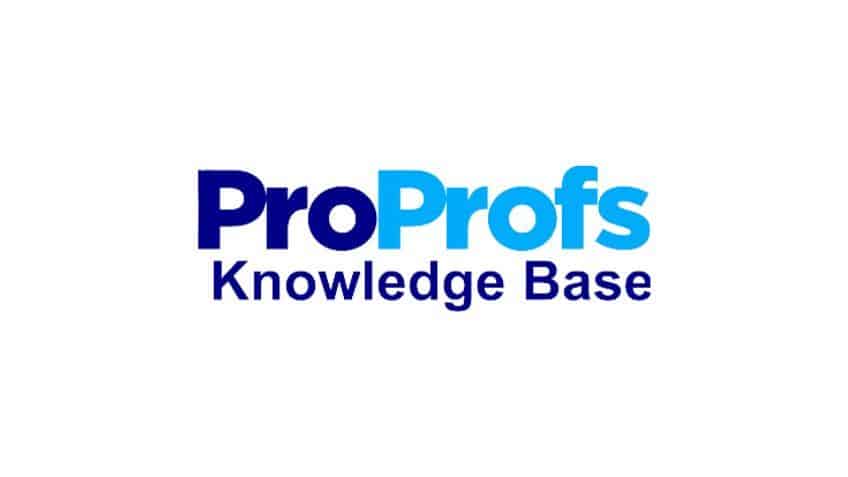

ProProfs Knowledge Base is the easiest way to stand up a help center fast. It integrates with 100+ tools like Salesforce, Freshdesk, Google Analytics, and Olark, so you can extend functionality as you grow.
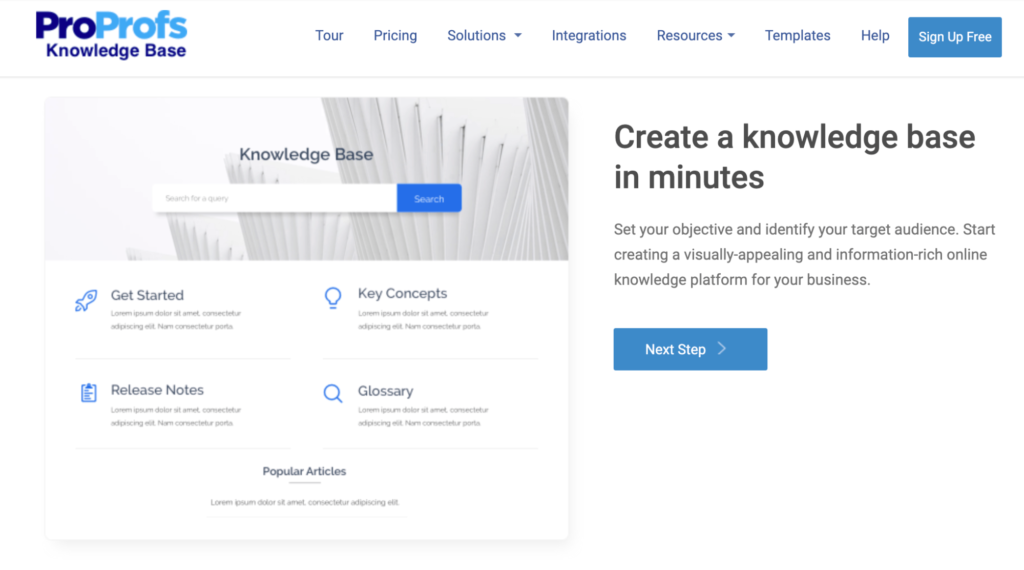

Use it for internal knowledge bases, user guides, manuals, wikis, and public help centers. The editor is friendly for non-technical users, and hosting is fully managed.
Updated pricing (annual billing):
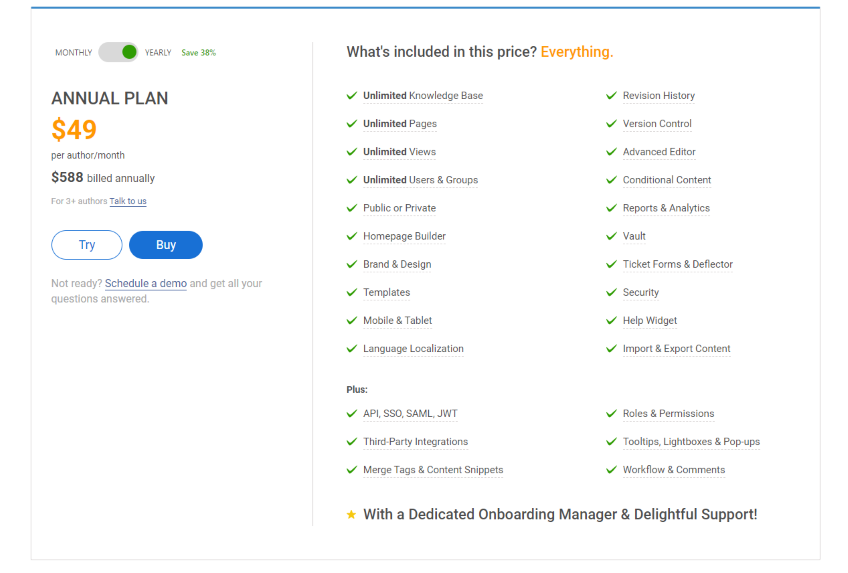

- Essentials — $49 per author/month (max 1 author, 300 pages)
- Business — $79 per author/month (up to 5 authors, 500 pages)
- Enterprise — starting at $199.99 per author/month (annual only)
You can start with a free trial, and there’s also a 15-day money-back guarantee. Try ProProfs Knowledge Base to see if it fits your workflow.
Tettra — Best For Internal Use
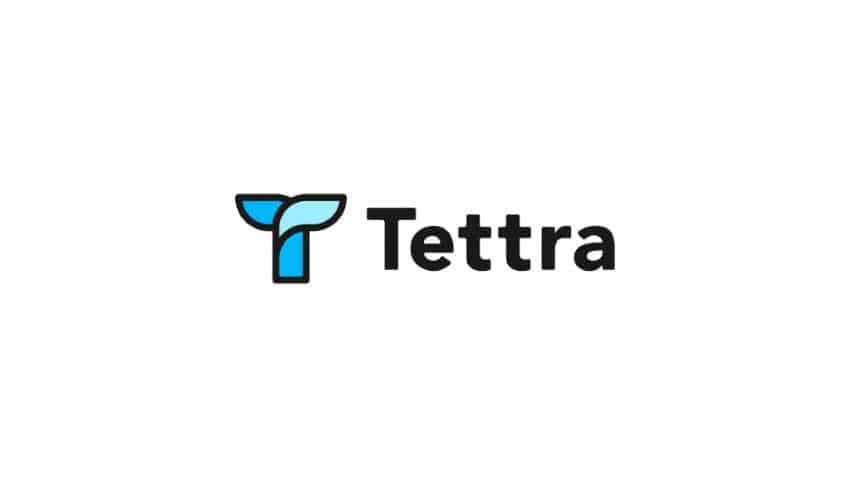

Many tools can host internal documentation, but Tettra is purpose-built for team knowledge. It centralizes policies, SOPs, and answers to recurring questions—especially handy for onboarding and distributed teams.


Tettra is tightly integrated with Slack and Google Workspace, includes internal Q&A, and supports AI-powered answers for common questions. Admins get verification workflows and stale-page reports to keep content fresh.
Pricing (billed yearly, with free trials):
- Basic — $4 per user/month (10 user minimum)
- Scaling — $8 per user/month (adds AI features and advanced permissions)
- Professional — $7,200/year (includes first 50 users, SSO/SCIM, priority support)
Kick the tires with Tettra’s 30-day free trial.
How to Find the Best Knowledge Base Software For You
Here’s the methodology we use to evaluate knowledge base software. Use it as a checklist while you compare tools:
Type of Knowledge Base Software
Knowledge base tools come in several flavors: standalone platforms, modules inside help desk suites, WordPress theme+plugin combos, and ITSM suites that bundle knowledge management. If you want the fastest path to a public help center, choose a dedicated platform or a WordPress solution. If you need tickets, chat, and knowledge in one place, consider an all-in-one suite.
Public vs. Internal Uses
Most buyers start with public self-service. Don’t overlook internal documentation: onboarding guides, SOPs, engineering runbooks, and HR policies. Pick a tool that can lock articles or entire categories when you need private content, and support SSO if you’ll restrict access by role.
Text Editing & Collaboration
Look for a clean editor (WYSIWYG and/or Markdown), media embeds, reusable content snippets, and templates. Versioning, review workflows, and comments help teams ship accurate content faster—especially for technical docs.
Search & Structure
Fast, typo-tolerant search with synonyms and filters is a must. Make sure you can tune relevance, view failed searches, and add related articles. A table of contents and clear category structure improve scanability and cut ticket volume.
Analytics & Feedback
Analytics should show what people search for, what they can’t find, and which articles reduce tickets. Inline thumbs-up/down or satisfaction prompts help you prioritize improvements. Dashboards that track deflection rates are a bonus.
Security, Access, and Compliance
For internal knowledge, confirm SSO/SCIM support and role-based permissions. If you work in regulated industries, look for SOC 2 and audit logs. Export options are important for backup or vendor changes.
Integrations & Extensibility
Integrations with your help desk, chat, analytics, and translation tools reduce manual work. APIs, webhooks, and widget/SDK options let you surface answers inside your app or site.
Authoring Speed & Maintenance
Prioritize features that keep content fresh: scheduled reviews, stale-page reports, ownership assignments, and easy redirects for moved content. These save time and keep users on the right article.
Quick Start: Build a Helpful Knowledge Base in 7 Steps
- List top 50 questions from tickets, chats, and sales calls. Group them into 6–10 categories.
- Create templates for how-to, troubleshooting, release notes, and FAQs to keep formatting consistent.
- Write in task-first language. Lead with the outcome, then the steps. Add annotated screenshots or short clips where useful.
- Ship a minimum viable help center, then use search analytics and feedback to fill gaps.
- Set review cadences (e.g., every 90 days) and assign owners to categories.
- Add synonyms to search (product codename ? public name, acronyms ? full terms).
- Measure ticket deflection and update your top 10 articles monthly.
The Top Knowledge Base Software in Summary
Customers expect instant answers. A well-structured knowledge base gives them exactly that while reducing ticket load and improving satisfaction.
Helpjuice is our top pick for scaling external support with deep analytics and customization. Document360 is the best choice for technical documentation at team and enterprise scale. If you want an all-in-one support suite that includes a help center, try Zendesk. And if you’re on WordPress, Heroic KB is the fastest path to a professional, fully branded knowledge base.
